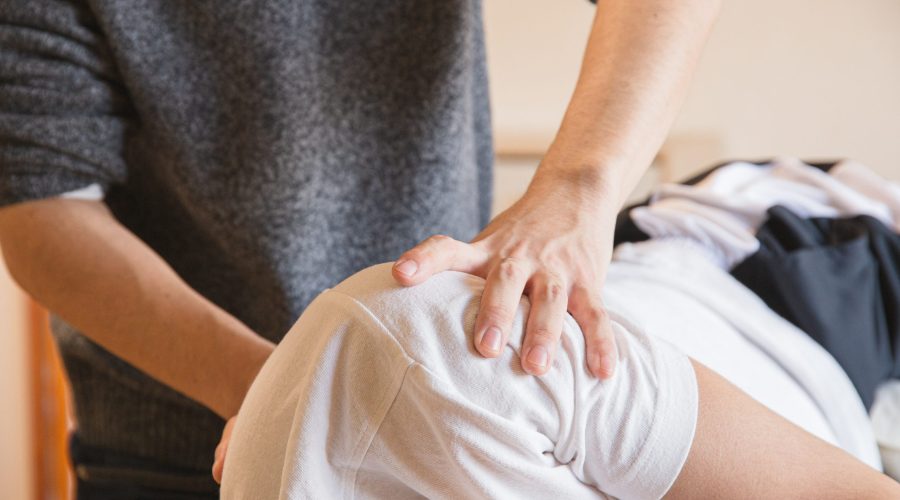Complementary therapy is an umbrella term for holistic healthcare therapies offering a range of mental and physical benefits. These gentle, supportive therapies are natural, non-invasive, and used alongside conventional medical treatments.
However, the cost of complementary therapies is prohibitive for many people in the UK. With that said, there is a way to access complementary therapies on the NHS (National Health Service).
In this article, we’ll discuss which complementary and holistic therapies are available on the NHS. We’ll also explore how you can access NHS alternative medicine to support your healing.
How popular are complementary therapies in the UK?
Complementary therapies have grown in popularity in the UK over the last few decades.
According to research1, 12% of the English population used complementary and alternative medicine (CAM) in 2005. And that number grew to 16% in 2015. We don’t have accurate stats for 2022, but if internet searches are anything to go by, the amount of people looking for complementary therapies in the UK has exploded.
What are the most popular complementary therapies in the UK?
The most popular CAM therapies in the UK are:
- Massage therapy
- Osteopathy
- Chiropractic
- Acupuncture
- Yoga therapy
- Reflexology
- Aromatherapy
- Meditation
- Herbal medicine
Many people use a combination of complementary therapies to manage symptoms like musculoskeletal pain, stress, anxiety, depression, sleep problems, and fatigue.

Research suggests women, higher-income earners, and those in the South of England are the most common users of complementary therapies. As such, access to complementary therapies is still unequal in the UK.
Do you have to pay for complementary therapies?
Most complementary therapies in the UK are paid for privately. However, while the NHS and complementary therapies may not sound like they go together, some are available on the NHS with a referral.
Are complementary therapies available on the NHS?
Complementary therapies are becoming increasingly available on the NHS. Many are now free of charge from GP clinics, physiotherapists, hospitals, pain clinics, and hospices.
However, the NHS is committed to evidence-based medicine. Complementary therapies on the NHS need to be backed by science, safe, and reasonably affordable. Unfortunately, many complementary and alternative medicine treatments don’t have the support of rigorous clinical trials.
The National Institute for Health and Care Excellence (NICE) offers guidance about which complementary therapies have evidence of efficacy and safety.
What alternative treatments are free on the NHS?
Some complementary therapies are free on the NHS, while others are partly funded. This largely depends on the funds your local GP surgery or NHS hospital has set aside for complementary therapies.
Osteopathy and chiropractic are regulated by law and accepted by NICE. That said, these therapies are still only available on the NHS in limited circumstances.
Acupuncture is widely available in the NHS. It is usually free when administered by GPs or physiotherapists for chronic headaches, migraines, chronic pain, joint pain, anxiety, and insomnia.
The Alexander Technique may be available for chronic pain and Parkinson’s disease patients.
Aromatherapy, massage therapy, and reflexology are available on the NHS for some cancer patients. Hospitals, cancer units, and hospices may offer complementary therapies for free alongside conventional treatments in a limited capacity. Some complementary therapies may also be free for carers.
However certain therapies such as Ayurvedic medicine, Chinese medicine, Crystal Healing, Applied Kinesiology, Bowen therapy, and Reiki Healing aren’t available on the NHS.
How can I access complementary therapies on the NHS?
A GP or specialist referral is necessary to access complementary therapies on the NHS. However, you may only qualify for a referral if you meet specific criteria. In addition, the number of appointments is limited, and there may be a long waiting list.
We recommend you ask your doctor or local hospital about which complementary therapies are available in your area.
Final thoughts
The hope is that more clinical research funding and support for complementary therapies will continue to expand access to these healing modalities on the NHS.
Ironically, it will save money in the long run by reducing the use of conventional medication and other NHS services. Plus, it may help reduce sick leave and increase productivity.
We hope this article has given you the information needed to gain access to complementary and holistic medicine on the NHS. Always speak to your GP before using any new therapies. You can also find more about how to find a complementary therapist here.
Resources
- Sharp et al. (2018). Complementary medicine use, views, and experiences: a national survey in England. BJGP Open.
DISCLAIMER: The Site cannot and does not contain medical / health advice. The medical / health information is provided for general informational and educational purposes only and is not a substitute for professional advice. Accordingly, before seeking any form of medical advice, diagnoses or treatment based upon such information, we encourage you to consult with your GP or other qualified health practitioner. You must never disregard professional medical advice or delay in seeking it because of something mentioned on this Site. The use or reliance of any information contained on the Site is solely at your own risk.


